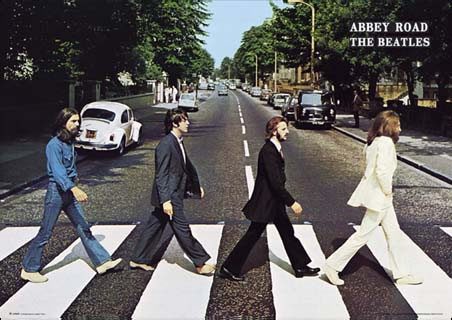So the Fairmont Hotels group is to open a hotel in the Abbey Road studios.
Deny all you will the nefarious influences of filesharing and piracy on the fortunes of the music industry – and those denyers will be denying it until the last guitar string has snapped and all that remains is the tootling self-published meanderings of egocentric dilettantes on infinitely replicable 'pay what you think it's worth' platforms – this is surely a symbol that cannot be plausibly denied with lies and statistics.
The hotel chain will, according to its own PR, be bringing in a design team from the Savoy to add its signature style to a building which is as crucial to the UK's cultural patrimony as Tower Bridge or the Elgin Marbles. More so, since the former is of American design and the latter were nicked from Greece. How lovely.

Abbey Road then. Another asset to be stripped. Need we be sentimental about it becoming (at least partly) a hotel? There is the obvious connection to The Beatles, the famous album cover where the fab four crossed the road, Paul barefoot (prompting rumours of his death, naturally). There is the whimsy of 'Penny Lane', recorded there and embodying the quintessence of Englishness to a nation which has always struggled to fix on that simplest of things – an agreed image of itself.
It hardly matters that the song was beaten to number one by Englebert Humperdinck, it is simply the aural expression of those leafy suburbs that John Major so deftly linked himself to back in the day when music industry types were falling over their feet in the scramble to trade their proud pounds sterling into Provencal barn-conversions with olive-presses and indentured serfs. 
Whilst the rich heritage of Abbey Road studios is clearly of importance, and is a cash-cow in itself (think of it as an English Pere Lachaise cemetery, with t-shirt concessions), there is another aspect to the place that is important. It’s HUGE. It can hold an orchestra. That makes it rare. It is, to strain an analogy to violin-string tension, the Harland and Wolff of the British recording industry.
To educate any who are puzzled by that metaphor, H&W is one of the world’s only twin-crane shipyards, capable of building enormous liners and cruiseships (famously, the Titanic). The shipyard has a history that is as bleak and depressing as any heavy industry-meets sectarian division-meets government bungling-meets East Asian competition tale. That said, it’s big, and by virtue of being big, is rare.
Abbey Road too, is big. Recording equipment has become cheaper and more accessible to the home user over the past decade, we all know that. We all know of records that got to number one despite being recorded in a bedsit somewhere in tenements stapled to the inside of a skip. And the sonic quality is fine, more often than not. Where small studios have problems though, is with vocals, hence the rash of Vocoder-inflected vocals on the market at any one time. Vocal recording requires a very sonically neutral space. If you do decide to record a record in a bedsit, use a vocal sample from another record, or filter what vocals you do record with lots of effects, because for vocals you need a proper studio.
If vocals are tricky, multiply that by a factor of three or so if you want to capture the sonic profile of reed/brass. Add more difficulty for woodwind. You want to record an orchestra? All playing together? Suffice to say, it’s an exponential level of difficulty. Abbey Road ceasing to exist as a recording studio, or even consolidating and becoming something slightly less majestic than its current state, heralds yet another sad day for the music industry.
You may not buy many Elgar symphonies, but you’ve probably heard the Harry Potter soundtrack, or the score for The Lord of the Rings, and somewhere in your heart you know that it would be a sad event to see those recordings being made elsewhere. Sentimental retro-chic is nothing to mourn, the world does not need any more Lenny Kravitz-style fetishising of the outmoded.
Abbey Road is more than a quaint bubble of sentiment though, and it would be another sad case of short-termism in the face of what is a very real crisis period in the lives of musicians, studio techs, mastering engineers, producers, etc to let the studio go.

The aim of art is to represent not the outward appearance of things, but their inward significance. – Aristotle














